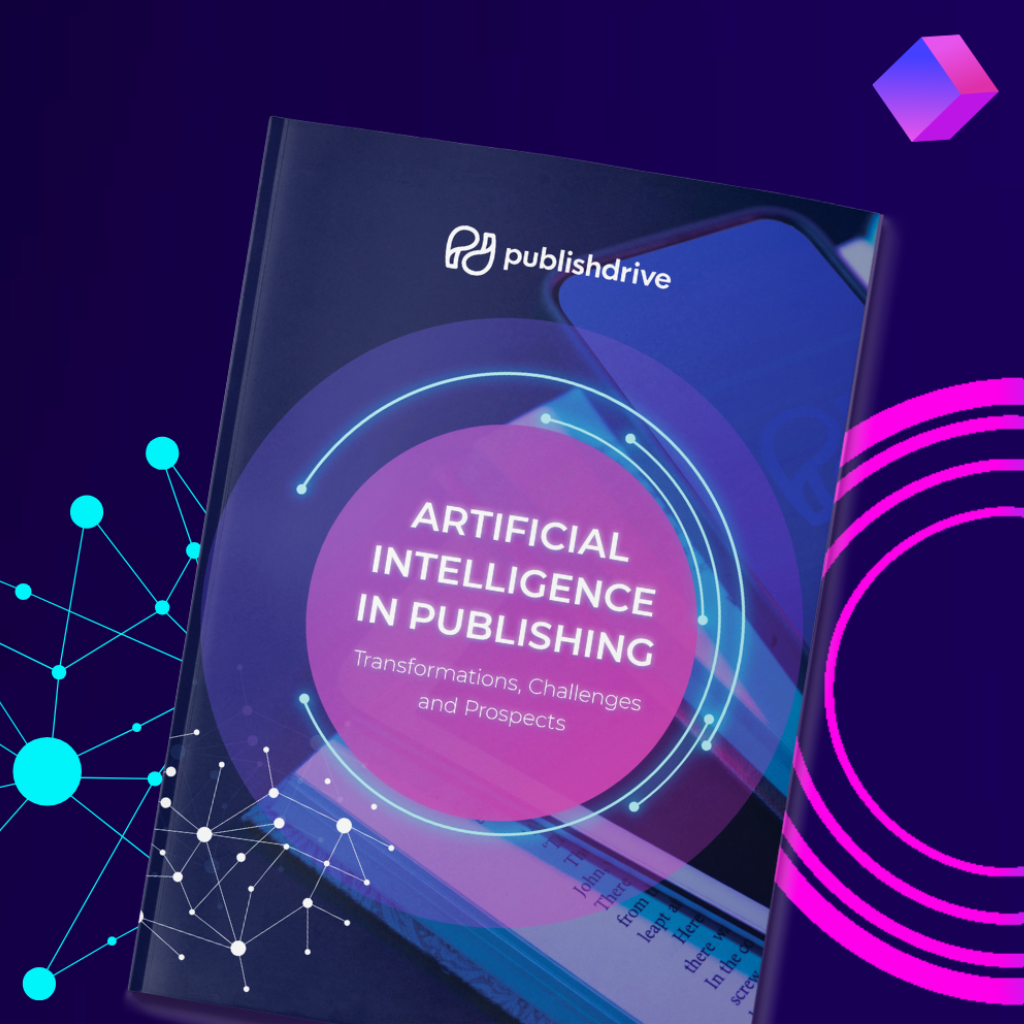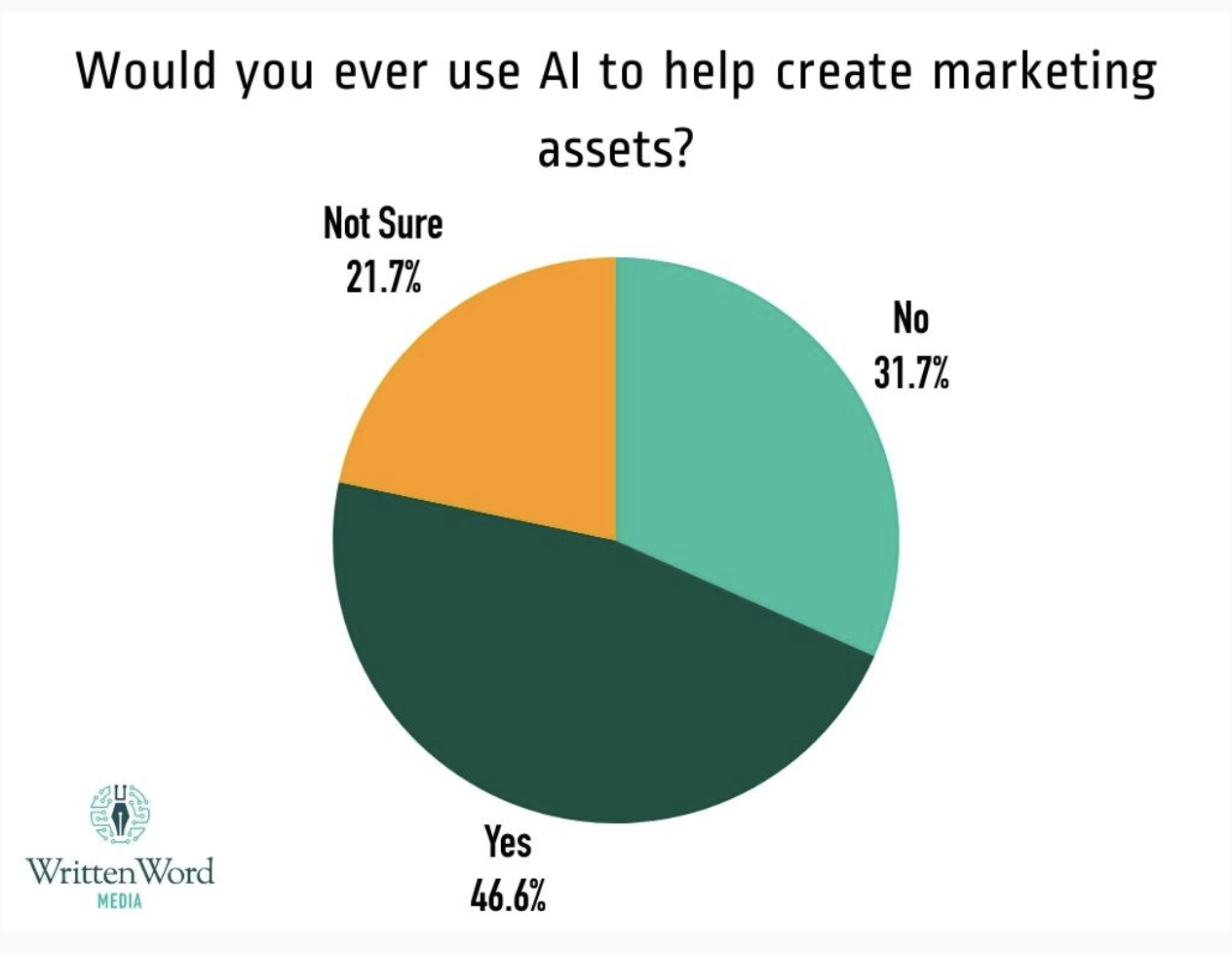Copyright Protection In the Age of AI

With the launch of large language models such as GPT-4 and other generative AI systems, there was a vast surge in content across the internet and on various platforms in the book industry. This came with opportunities for authors to release new titles faster, yet the book publishing industry is more vulnerable to scams, piracy, and content overload.
Key Takeaways:
- AI technologies have boosted the capacities of the publishing industry, offering authors unprecedented support in their writing processes.
- With copyright protection law lagging behind technological advancements, key stakeholders have devised their processes to identify AI-assisted content.
- Considering the worldwide increase in content, authors are required not only to master their craft but also to ensure they are discovered in an increasingly busy market.
The Perks of AI Capabilities
We can’t deny it – authors who use AI tools have started to write and publish books faster.
From testing between narrative styles to streamlining the editing process and book cover creation and then nailing post-launch marketing, AI software options look like they can provide trusted support.
Writer’s block seems to be a problem of the past now that authors can take advantage of various writing tools. Once the story’s theme is identified, AI can assist in writing the plotline and testing possible resolutions or narrative voices.
Authors can use their writing communities to test ideas and styles with potential readers or their trusted fan base.
In the PublishDrive network
PublishDrive has recently surveyed over 250 authors and publishers to understand how they use AI in their processes. Here are the key findings:
1. Authors and publishers utilize AI to generate ideas and aid writing.
2. AI is reshaping content production, leaning towards more AI-driven processes.
3. Marketing strategies are fine-tuned with AI for better targeting and effectiveness.
4. New AI-enhanced methods emerge for reader engagement.
5. Future content tends to be more personalized and interactive.
6. There's a call for industry-wide standards to address ethical concerns.
🔥 Read all about it in the recently published PublishDrive whitepaper ⬇️

How Much AI Is Good AI?
Since AI adoption has become mainstream, authors have fought against the use of their writings to train large language models. They demanded protection against such usage without their consent and compensation for what has been used to date.
While a legal resolution is pending, numerous other stakeholders are trying to keep up with the AI innovation spree.
CCC Pioneers Collective has recently announced that publishers and rights holders can now grant permission for their content to be used in training AI models as part of their licensing agreements.
Find Jane Friendman’s considerations below, as well as a list of publishers who have already signed a partnership agreement with AI companies.
Theoretically, authors could object and withhold their material from training, but that would be turning down free money. The average author’s concerns about AI training or ingestion often betray a misunderstanding about what today’s large-language models are intended to do. They are not databases where you retrieve information. They are not machines that intend to steal, plagiarize, or regurgitate. (If and when they do, the developers consider that a flaw to be worked out.) Benedict Evans has expressed this eloquently: “OpenAI hasn’t ‘pirated’ your book or your story in the sense that we normally use that word, and it isn’t handing it out for free. Indeed, it doesn’t need that one novel in particular at all. In Tim O’Reilly’s great phrase, data isn’t oil; data is sand. It’s only valuable in the aggregate of billions, and your novel or song or article is just one grain of dust in the Great Pyramid.
Jane Friedman, Like It or Not, Publishers Are Licensing Books for AI Training—And Using AI Themselves
1. The Authors Guild
The Authors Guild has recently issued a best practices guide for authors using AI in their writing. These outlines recognize the potential benefits and pitfalls of AI in content creation.
Before using generative AI:
- Authors should weigh the ethical implications of using generative AI and prioritize original content.
- AI tools can serve as valuable assistants for brainstorming and refining ideas, but authors should avoid relying on AI as their primary source of work.
- Authors must ensure that AI-generated text is rewritten in their voice to preserve authenticity.
Ethical considerations:
- Authors should respect the rights of other creators and avoid infringing on copyrights or mimicking distinctive styles.
- Thorough review and fact-checking of AI-generated content are essential due to potential inaccuracies and biases (such as data hallucinations).
Disclosure of AI usage:
- Authors must disclose any significant use of AI-generated text, characters, or plot to publishers, as it may affect contractual agreements.
- Discussion with agents and publishers is essential to ensure appropriate contract terms regarding AI use and originality.
- Publishers may have specific guidelines regarding authors' use of AI, underscoring the importance of communication and adherence to contractual obligations.
2. At PublishDrive
PublishDrive is an AI-friendly company looking to use technological advancement to streamline processes and help authors and publishers connect with their intended audiences across global markets.
We have an AI assistant that answers any question related to our platform. Even so, we value the accuracy of every piece of information: the assistant gives answers based on our help center articles, so everything is handled by a human first.
How does PublishDrive handle AI-generated content?
Retailers like Amazon require you to inform of AI-generated content (text, images, or translations).
PublishDrive is a global distributor, so we don't require AI disclosure like some retailers, and we can distribute these books unless a store explicitly rejects them.
Even so, we strongly encourage authors to be transparent about AI use in their content. Under the PublishDrive Terms and Conditions, the user is responsible for the content.
Even though PublishDrive allows AI-generated books, it's still recommended to disclose AI use in the metadata because it might get flagged anyway: PublishDrive manually checks metadata and can identify AI-generated content.
Since we don’t reject these books, authors should disclose the use of AI in the metadata, especially if a book is partially created by AI and it’s more difficult to notice.
Keep in mind: Low-content books are always suspicious. They could be easily made by AI (like short, repetitive content), and we always ask for copyright documents in these cases before we let the book go through.
3. The US Copyright Office
The U.S. Copyright Office is undergoing a study on the impact of generative AI on copyright law.
- The first section, expected in spring 2024, focuses on digital replicas created by AI.
- The second part, due in the summer of 2024, addresses the copyrightability of works with AI-generated material, training AI models on copyrighted works, and related licensing and liability issues.
The Office plans to update the Compendium of U.S. Copyright Office Practices, providing further guidance on registering works containing AI-generated material. This update will follow a public notice requesting comments from stakeholders.
➡️ You can follow news and updates here.
4. EU AI Act
The Federation of European Publishers [FEP] praised the adoption of the EU Artificial Intelligence (AI) Act. The legislation ensures ethical AI development and prevents abusive or illegal practices.
The Act complements existing copyright obligations, allowing rights holders to opt out from Text-and-Data mining and supporting licensing systems.
Transparency requirements under the Act are seen as crucial by FEP, enabling publishers to protect their rights and verify the legal use of their works in AI training.
Over 200 organizations in Europe's creative sectors supported the legislation, citing concerns over the unauthorized use of copyright-protected works in AI model training.
The Pitfalls of AI Capabilities
Written Word Media has listed the top 10 publishing trends for 2024; three are directly linked to the rise in AI technologies.
1. Quality is king
Authors were encouraged to develop a consistent portfolio for years, especially when self-publishing.
It was advice authors adhered to as it allowed them to develop and consolidate their readership and do promotions to increase discoverability across neighboring niches. Serialized fiction is an excellent pool for promo stacking (again, a trend for 2024!).
While quantity remains an attribute of established authors, quality is the reigning force of the book publishing industry. Pickiness in readers is expected to grow as we all face an increasing number of publications written with AI support or entirely written by AI.
Authors are now required not only to master their topic but also to consider the book as a marketable product.
This translates to:
- paying more attention to editing and, generally, the manuscript preparation phase.
- making your cover memorable
- researching the best fonts
- nailing the blurb
- understanding metadata
- getting familiar with basic SEO techniques to improve discoverability
While authors can choose not to use AI assistance for writing, according to Written Word Media, most authors use AI tools to market their books.

2. Piracy
There is a dark underbelly of AI content generation: content farms produce content similar to that of bestselling and mainstream authors. It mimics their tone of voice and cover styles, tricking the algorithms in retailers like Amazon because they are SEO-loaded.
This practice makes it difficult for readers to recognize when they are tricked, and it piggybanks on the backs of authors who are financially affected by this trend.
Piracy is not a new issue in publishing. Still, in the age of AI, with copyright regulation lagging behind technological advancements, authors need new layers of copyright protection since piracy has become more accessible and more frequent.
Here is what Kinga Jentetics, PublishDrive’s CEO, told Written Word Media:
“In response to the increasing challenge of protecting copyright (especially controversial with the phenomenon of AI and recent lawsuits about using copyrighted materials) and preserving the integrity of publishing systems, there will be a concentrated effort to combat fraud.
At PublishDrive, we collaborate closely with global retailers, placing a high priority on securing authors’ copyrights. We’ve established a system to detect and address copyright infringement at an early stage, creating a secure online environment for our valued authors.”
Conclusion
When used ethically, AI adoption can bring authors great benefits, making their publishing journey more manageable and rewarding.
For example, audiobook creation has become easy and affordable. AI Narration can turn a book into an audiobook in a fraction of the time required in the past. With digital literacy booming, new markets are accessed yearly from the comfort of one platform. Everything is fast-paced – from technological releases to publication and selling.
Authors need to be aware of the effects of fast culture, which prioritizes low costs and high volume and often leads to a flood of low-quality content.
Good books will not go away as long as authors keep true to their craft, but they may become more challenging to identify.